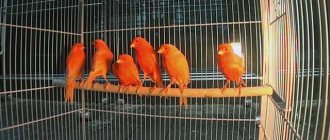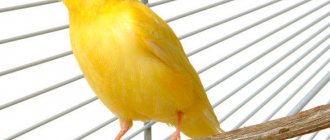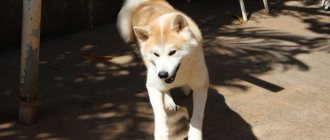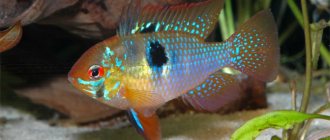Many people are looking for someone to take care of, someone to give their warmth to. Pets help brighten up loneliness: cats, dogs, guinea pigs, rabbits, hamsters, and other pets. While almost everyone is familiar with the peculiarities of keeping cats and dogs, how to care for a ferret is not always clear.
The ferret is a beautiful small predatory mammal with an elongated flexible body and a long tail. Males are larger than females and faster. This animal lives 6-10 years.
Attention! It is better to keep the animal alone, as it can destroy other small animals.
The ferret is an animal that is easy to tame
The cunning ferret easily communicates with people, but does not like strangers. To keep such a pet, you need to study everything about its behavior, nutrition, and care.
You can read about ferret diseases in our article here.
Keeping a ferret at home
Decide right away whether you will give your pet complete freedom or limit its movements around your home. But remember that the ferret loves space. The cage is a punishment for him. Therefore, it is better to use it only to clean the house without scaring or harming the baby animal.
Be sure to remove small items from the floor. Electrical wires should be out of reach of the ferret. Seal all the cracks, even the narrowest ones, because you are going to keep a burrowing animal at home. This means that the animal will try to crawl into any crack, but where is the chance that it won’t get stuck there?
The predator will definitely try to tear off the upholstery of the furniture with its teeth, chew on the plastic, and snag the wallpaper. Secure your home, because this little nimble can jump on the stove, knock over a pan, jump out of a window (even if there is a mosquito net) or from a balcony (especially if it is not glazed). Bathroom, toilet, pantry, kitchen - should not only be closed, but strictly prohibited from visiting by the animal.
The ferret will need toys, but all fur, small, plastic or rubber (if the material breaks easily) must be removed. Otherwise, the pet will tear the toy with its sharp teeth, swallow its pieces, choke, or clog its intestines. Choose good latex that is not easily damaged.
A ferret will need space, so be prepared for the animal to scurry around the house. Always look under your feet, do not rush to close the doors, because an animal can be on your way in one second.
At first the puppy will be shy, which is understandable. Foreign room, unfamiliar smells, atmosphere. Therefore, the ferret will be afraid of any noise, hide, run away, and maybe even bite. Please be patient.
If you are afraid to leave your pet alone in the apartment for a long time (for example, while you are working), then equip and insulate a balcony for it. Or buy a large cage that can accommodate a tray, a sleeping place, a drinking bowl, a feeder, and something like a mink. In addition, the volume of the cage should be such that you can run freely in it. Through simple calculations, it becomes clear that the area of the enclosure must be at least one square meter.
Caring for a ferret at home
Caring for a ferret is not only about providing your pet with living space and proper nutrition. It is also necessary to trim the claws, bathe the baby, play with it, educate it, and take it to the veterinarian.
- Claws must be trimmed. Yes, the ferret will not climb the curtains or damage the furniture with them, but the instinct to dig holes will not disappear anywhere. In nature, an animal wears down its claws when digging in the ground, but there is no place to do this at home.
At home there are carpets everywhere, to which these overgrown claws cling. As a result, the animal can get caught on them, get scared and begin to break free and twitch. After such attempts, the paw can be dislocated.
- Is it possible to wash a ferret at home? Yes, but not very often (once every 2-3 weeks). Animals love to swim, dive, and swim.
But you should not abuse this procedure. Only if the animal gets dirty or starts to smell bad (uncastrated males and females are especially “smelly”). In this case, the ideal solution is to sterilize the ferret. This way you can get rid of the unpleasant smell.
Never let a wet pet onto the floor. First, wipe with a towel, and then wait until the baby is completely dry.
- Ferrets love affection and love it when they play with them. How long should females and males run around the house if they are kept in a cage? The baby animal must run freely for at least 2 hours a day.
Pros and cons of ferrets as pets. Criterias of choice
The ferret is a playful and inquisitive animal
Before you get a predatory or exotic pet at home, you should understand what difficulties and joys it will bring to a measured life. So, among the positive aspects of keeping a ferret in an apartment, the following aspects can be highlighted:
- the animals are active and sociable, with due attention from the owner they will be attached to him;
- Ferrets are very playful;
- are small in size;
- ferrets do not make loud sounds;
- these pets sleep almost all day, so when you leave for work, you will not feel guilty for leaving your pet alone;
- You can walk your ferret outside by wearing a special leash;
- pets quickly get used to their cage;
- the fur of these animals is hypoallergenic.
The disadvantages of keeping a ferret come down to the following aspects:
- ferrets, like cats, mark territory, so there will be a specific smell in the apartment;
- the need for castration/sterilization;
- ferrets have perinatal glands, the secretion of which has an unpleasant odor, but, fortunately, it quickly disappears;
- ferrets constantly dig for something, bite and can damage furniture, wires, clothes, and various objects;
- Ferrets require specific nutrition, which has strict requirements;
- Such nimble and active animals have a habit of hiding everything that is in bad shape.
Choosing a puppy is a responsible task, since each ferret has its own temperament and it is important that it suits your needs. In addition, you need to take into account the following features:
1. Before purchasing, you need to decide on the gender of the animal. According to this criterion, pets vary in size, as well as behavioral characteristics. Males are larger, more imposing and aggressive. Parenting may be difficult. But females are distinguished by their flexible character and independence.
Important! A ferret of any gender must be sterilized after purchase. In the absence of a partner, these animals become depressed and quickly die.
2. The acceptable age for purchasing a puppy is 1 month. But experts do not recommend taking the cub away from its mother early, since she imparts certain survival skills to it. The optimal age for purchase is 2-3 months, since it is during this period that ferrets quickly get used to being handled and are easy to train.
3. You should also pay attention to the appearance of the puppy. A healthy ferret will have good fur (soft, clean, no bald spots), be slightly well-fed and cheerful. Vibrices should be elastic, not brittle. The nose of a healthy individual is wet and cold, and the eyes are clean. Any discharge from the mucous membranes should alert you.
What to feed your ferret at home
- What do ferrets eat and how much food do they need in their natural environment? Meat! Because it is a predator, and without meat the animal’s diet will be incomplete. Make a menu for your pet based on 85-90% meat or offal (kidneys, heart, liver) and the remaining 15-10% porridge, vegetables, boiled eggs.
What to feed a ferret so as not to harm it? It is best to have boiled chicken or turkey, beef, veal, or, as a last resort, lean lamb. You can also give fish (only infrequently), and be sure to make sure that there are no bones in the food so that the pet does not choke and harm itself.
It is better not to abuse raw meat products. The risk that the predator will become infected with something (parasitic, bacterial) is too great. Therefore, it is better to boil meat and offal (freezing does not always kill the causative agent of the disease).
- If you don’t have time to prepare natural food, then you can switch to specialized food for ferrets. Only you can only buy it in large cities; in other localities you can try to replace such food with canned food for cats. Only not cheap ones, after which the animal will start to get sick, but high quality ones (super premium or even holistic class).
- Ferrets eat, although little, but very often. Often – how much? They need to be given food approximately 7 times a day. Don’t be alarmed, a single serving is 3 times less than what the average cat eats.
But this does not mean that you need to dump everything into a bowl at once. Over the course of a day, the food in the bowl will turn sour, spoil, and the animal will get sick after such a meal. Therefore, put a little at a time, after the ferret eats everything (or leaves a little in the bowl), wash the dishes thoroughly (without using household chemicals).
Treatment and prevention
The mineral and vitamin complex has a very positive effect on how long ferrets live. It is usually introduced into the body through vaccination. Do not do this yourself; it is better to go to a veterinary clinic and entrust this procedure to a specialist. Such vitamins can be purchased at a pet pharmacy or in a specialty store. The main contents and dosage should be clarified. These complexes will strengthen the ferret’s immunity. You should not give up modern medicines and drugs, believing that the animal should take everything exclusively organic and natural. Since they contain vitamins and various additives that the animal really needs, most of these drugs do not cause an allergic reaction and cannot poison the ferret.
But still, before giving a vitamin supplement to your pet, consult your doctor, he will tell you which drug will help protect your pet from a particular virus.
If your ferret is sick, you will see it immediately. He will become drowsy, weak, and the pet will refuse to eat. But you shouldn’t treat your ferret at home, since you don’t know what exactly led to this condition of the animal. It is better to contact a veterinarian as soon as possible, because diseases in this species of creature are often chronic and develop very quickly; if help is not provided to the ferret in time, it may die.
If you adhere to simple rules for keeping ferrets at home, you will add more than one year to your pet’s life!
Ferret health
Animals are very nimble, so you need to keep an eye on them. They can get into the washing machine, under the furniture, between the ribs of the radiator, into the closet, and jump out onto the balcony, or even fall out completely.
Not long ago, ferrets began to be kept as pets. Therefore, there is not much information about their diseases. You definitely need to get rid of worms (both cats and dogs), and don’t forget about vaccinations.
Yes, a ferret needs to be vaccinated, just like a dog; after all, it is a carnivore. Imported anti-plague drugs are used for vaccination (domestic ones are not recommended). Be sure to get a passport for your pet and include all dewormings and vaccinations performed.
If you decide to travel with a troupe, you will need a passport and a special veterinary certificate (form No. 1), as well as a container (carrying).
Who do ferrets get along with?
Pets get along well with each other. But you can’t leave a predator unattended. Both pets need to be loved equally, without singling out anyone, in order to protect four-legged friends from hostility towards each other and jealousy. Ferrets get along well with cats and dogs of small breeds, except hunting ones. Birds and small rodents can become prey for ferrets due to their instincts.
In order for a pet to delight its owner with a cheerful disposition and affection, it is necessary to regularly monitor its health. The owner of a four-legged friend is obliged to pay attention to the behavior of the ferret, its bowel movements, the length of its claws and appetite.
Veterinarian listens to ferret and gives recommendations for care
If you suspect something is wrong, you should immediately contact a specialist. Timely assistance from a veterinarian will help maintain the health of the ferret and, in some cases, save her life.











